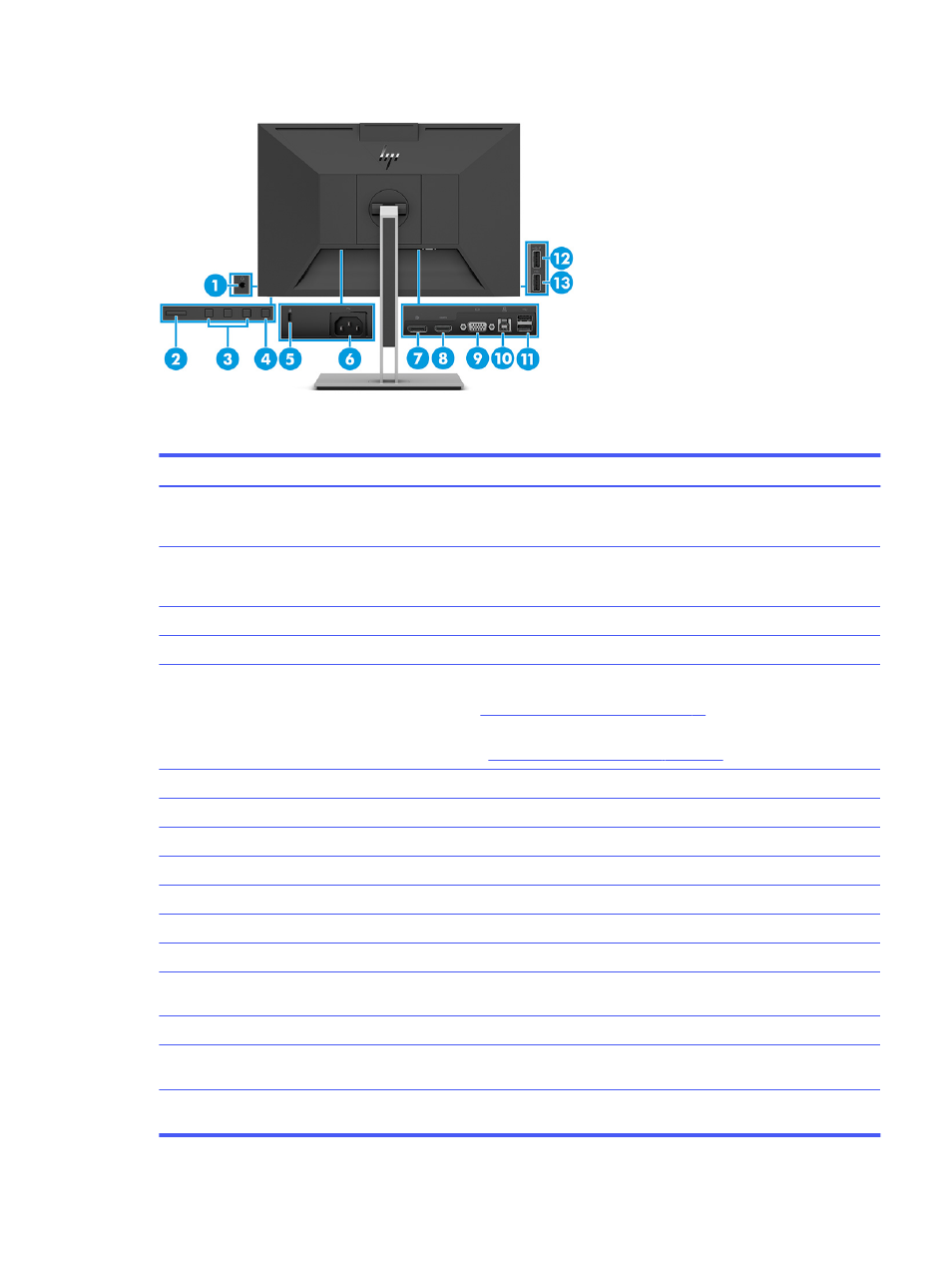Bottom and side components 5 – HP E24mv 24" 16:9 Conferencing IPS Monitor User Manual
Page 10

Table 1-3
Bottom and side components and their descriptions
Component
Description
(1)
Audio-out (headphone)/Audio-
in (microphone) combo jack
Connects optional powered stereo speakers, headphones, earbuds, a headset, or a
television audio cable. Also connects an optional headset microphone. This jack does
not support optional standalone microphones.
IMPORTANT:
To reduce the risk of personal injury, adjust the volume before putting on
headphones, earbuds, or a headset. For additional safety information, see the Regulatory,
Safety, and Environmental Notices
NOTE:
When a device is connected to the jack, the speakers are disabled.
(2)
Power button
Turns the monitor on or off.
(3)
OSD buttons
(assignable)
When the OSD menu is open, press the buttons to navigate through the menu. The
function light icons indicate the default button functions. For a description of these
Using the OSD function buttons on page 18
You can reassign the function buttons to quickly select the most commonly used
operations. See
Reassigning the function buttons on page 19
(4)
Menu
button
Press to open the OSD menu.
(5)
Security cable slot
Connects an optional security cable.
(6)
Power connector
Connects a power cord.
(7)
DisplayPort connector
Connects the DisplayPort cable to a source device such as a computer or game console.
(8)
HDMI port
Connects the HDMI cable to a source device such as a computer or game console.
(9)
VGA port
Connects the VGA cable to the source device.
(10)
USB Type-B port (upstream)
Connects the USB Type-B cable to a source device such as a computer or game console.
NOTE:
A USB Type-B cable must be connected from the source device to the monitor to
enable USB Type-A ports on the monitor.
(11)
USB ports (2)
Connect a USB cable to a peripheral device, such as a keyboard, mouse, or USB hard drive.
(12)
USB port with battery fast
charging 1.2
Connects a USB device, provides high-speed data transfer, and charges small devices such
as a smartphone, even when the computer is DC off with OSD Performance mode on.
(13)
USB port
Connects a USB cable to a peripheral device, such as a keyboard, mouse, or USB hard
drive.
Bottom and side components
5
